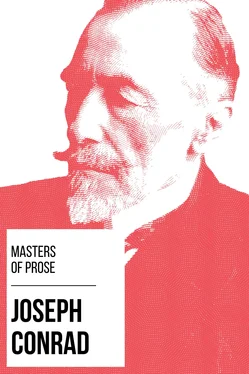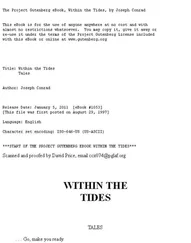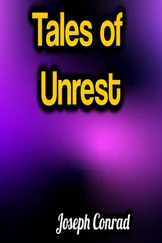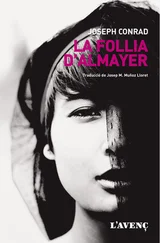And there might have been some truth in his protestations. Very soon he began to make overtures of friendship to his eldest stepson, my maternal grandfather; and when these were peremptorily rejected he went on renewing them again and again with characteristic obstinacy. For years he persisted in his efforts at reconciliation, promising my grandfather to execute a will in his favour if he only would be friends again to the extent of calling now and then (it was fairly close neighbourhood for these parts, forty miles or so), or even of putting in an appearance for the great shoot on the name-day. My grandfather was an ardent lover of every sport. His temperament was as free from hardness and animosity as can be imagined. Pupil of the liberal-minded Benedictines who directed the only public school of some standing then in the south, he had also read deeply the authors of the eighteenth century. In him Christian charity was joined to a philosophical indulgence for the failings of human nature. But the memory of those miserably anxious early years, his young man's years robbed of all generous illusions by the cynicism of the sordid lawsuit, stood in the way of forgiveness. He never succumbed to the fascination of the great shoot; and X, his heart set to the last on reconciliation, with the draft of the will ready for signature kept by his bedside, died intestate.
The fortune thus acquired and augmented by a wise and careful management passed to some distant relatives whom he had never seen and who even did not bear his name.
Meantime the blessing of general peace descended upon Europe. Mr. Nicholas B., bidding good-bye to his hospitable relative, the “fearless” Austrian officer, departed from Galicia, and without going near his native place, where the odious lawsuit was still going on, proceeded straight to Warsaw and entered the army of the newly constituted Polish kingdom under the sceptre of Alexander I, Autocrat of all the Russias.
This kingdom, created by the Vienna Congress as an acknowledgment to a nation of its former independent existence, included only the central provinces of the old Polish patrimony. A brother of the Emperor, the Grand Duke Constantine (Pavlovitch), its Viceroy and Commander-in-Chief, married morganatically to a Polish lady to whom he was fiercely attached, extended this affection to what he called “My Poles” in a capricious and savage manner. Sallow in complexion, with a Tartar physiognomy and fierce little eyes, he walked with his fists clenched, his body bent forward, darting suspicious glances from under an enormous cocked hat. His intelligence was limited, and his sanity itself was doubtful. The hereditary taint expressed itself, in his case, not by mystic leanings as in his two brothers, Alexander and Nicholas (in their various ways, for one was mystically liberal and the other mystically autocratic), but by the fury of an uncontrollable temper which generally broke out in disgusting abuse on the parade ground. He was a passionate militarist and an amazing drill-master. He treated his Polish army as a spoiled child treats a favourite toy, except that he did not take it to bed with him at night. It was not small enough for that. But he played with it all day and every day, delighting in the variety of pretty uniforms and in the fun of incessant drilling. This childish passion, not for war, but for mere militarism, achieved a desirable result. The Polish army, in its equipment, in its armament, and in its battle-field efficiency, as then understood, became, by the end of the year 1830, a first-rate tactical instrument. Polish peasantry (not serfs) served in the ranks by enlistment, and the officers belonged mainly to the smaller nobility. Mr. Nicholas B., with his Napoleonic record, had no difficulty in obtaining a lieutenancy, but the promotion in the Polish army was slow, because, being a separate organization, it took no part in the wars of the Russian Empire against either Persia or Turkey. Its first campaign, against Russia itself, was to be its last. In 1831, on the outbreak of the Revolution, Mr. Nicholas B. was the senior captain of his regiment. Some time before he had been made head of the remount establishment quartered outside the kingdom in our southern provinces, whence almost all the horses for the Polish cavalry were drawn. For the first time since he went away from home at the age of eighteen to begin his military life by the battle of Friedland, Mr. Nicholas B. breathed the air of the “Border,” his native air. Unkind fate was lying in wait for him among the scenes of his youth. At the first news of the rising in Warsaw all the remount establishment, officers, “vets.,” and the very troopers, were put promptly under arrest and hurried off in a body beyond the Dnieper to the nearest town in Russia proper. From there they were dispersed to the distant parts of the empire. On this occasion poor Mr. Nicholas B. penetrated into Russia much farther than he ever did in the times of Napoleonic invasion, if much less willingly. Astrakan was his destination. He remained there three years, allowed to live at large in the town, but having to report himself every day at noon to the military commandant, who used to detain him frequently for a pipe and a chat. It is difficult to form a just idea of what a chat with Mr. Nicholas B. could have been like. There must have been much compressed rage under his taciturnity, for the commandant communicated to him the news from the theatre of war, and this news was such as it could be—that is, very bad for the Poles. Mr. Nicholas B. received these communications with outward phlegm, but the Russian showed a warm sympathy for his prisoner. “As a soldier myself I understand your feelings. You, of course, would like to be in the thick of it. By heavens! I am fond of you. If it were not for the terms of the military oath I would let you go on my own responsibility. What difference could it make to us, one more or less of you?”
At other times he wondered with simplicity.
“Tell me, Nicholas Stepanovitch” (my great-grandfather's name was Stephen, and the commandant used the Russian form of polite address)—“tell me why is it that you Poles are always looking for trouble? What else could you expect from running up against Russia?”
He was capable, too, of philosophical reflections.
“Look at your Napoleon now. A great man. There is no denying it that he was a great man as long as he was content to thrash those Germans and Austrians and all those nations. But no! He must go to Russia looking for trouble, and what's the consequence? Such as you see me; I have rattled this sabre of mine on the pavements of Paris.”
After his return to Poland Mr. Nicholas B. described him as a “worthy man but stupid,” whenever he could be induced to speak of the conditions of his exile. Declining the option offered him to enter the Russian army, he was retired with only half the pension of his rank. His nephew (my uncle and guardian) told me that the first lasting impression on his memory as a child of four was the glad excitement reigning in his parents' house on the day when Mr. Nicholas B. arrived home from his detention in Russia.
Every generation has its memories. The first memories of Mr. Nicholas B. might have been shaped by the events of the last partition of Poland, and he lived long enough to suffer from the last armed rising in 1863, an event which affected the future of all my generation and has coloured my earliest impressions. His brother, in whose house he had sheltered for some seventeen years his misanthropical timidity before the commonest problems of life, having died in the early fifties, Mr. Nicholas B. had to screw his courage up to the sticking-point and come to some decision as to the future. After a long and agonizing hesitation he was persuaded at last to become the tenant of some fifteen hundred acres out of the estate of a friend in the neighbourhood.
Читать дальше












